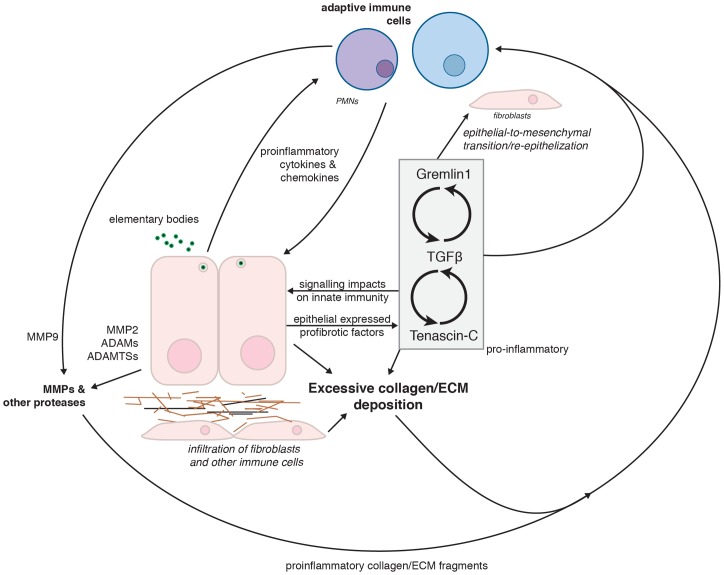Figure 4. A proposed model of chlamydial-induced fibrosis and chronic scarring through the induction of multiple positive feedback loops.
Infection of epithelial cells by Chlamydia leads to production of proinflammatory cytokines and chemokines that lead to recruitment and activation of immune cells. Recruited immune cells and infected epithelial cells secrete pro-fibrotic matrix metalloproteases (MMPs) that act upon the extracellular matrix (ECM), including collagens. The breakdown products of these proteases are also pro-inflammatory. Infected epithelial cells express the pro-fibrotic molecules TGF-β, Gremlin1 and Tenascin-C; expression of each amplifies the other, creating a series of nested positive feedback loops that increase the deposition of collagens and other ECM components, which in turn further induce immune cell recruitment and activation.

